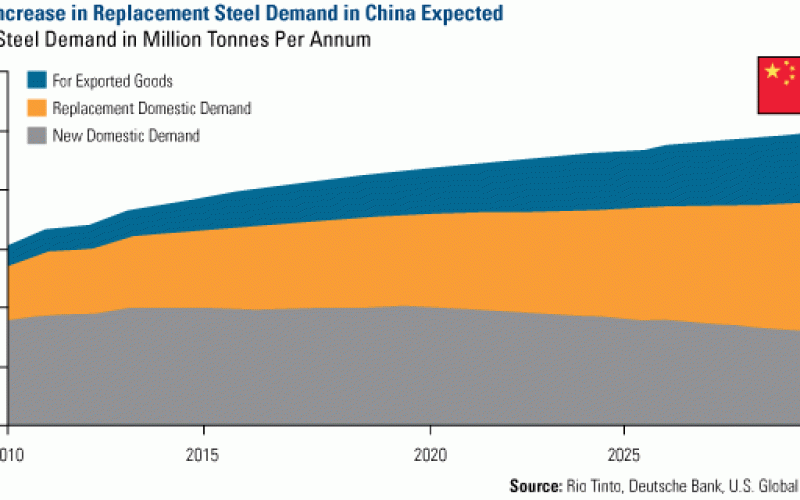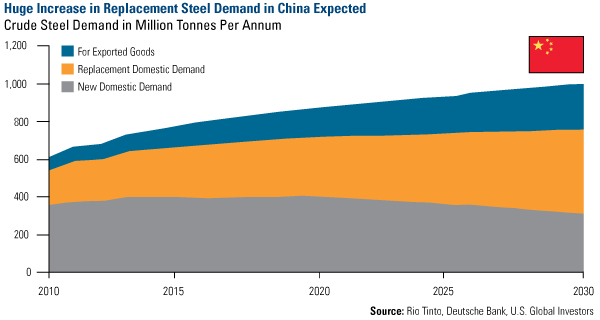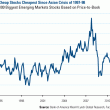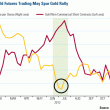Energy and Natural Resources Market Radar (December 16, 2013)
Strengths
- The International Energy Agency raised its 2014 global oil demand growth estimate by 240,000 barrels per day to 92.4 million barrels per day, reflecting signs of accelerating demand growth in Organisation for Economic Co-operation and Development (OECD) countries.
- The price of natural gas surged again the week on further cold weather throughout much of the nation. Natural gas closed at a two-year high of $4.41 per million British Thermal Unit (MMBtu) or 8 percent higher than last week.
- The Baltic Dry Freight shipping index, a measure of global economic activity, along with demand for steel and iron ore, climbed to its highest level in three years.
- The Energy Information Administration said that U.S. crude oil production reached 8.075 million barrels a day in the week ending December 6, which is the highest since October 1988.
Weaknesses
- Spot hard-coking coal peakedd at $171 per ton in February and has averaged $153.41 this year, according to data from Energy Publishing. However, spot prices have dropped 7 percent since September to $140.70 as supply continues to outpace global demand.
- Coal India Ltd., the nation’s biggest producer, fell the most in more than eight weeks after it was fined 17.7 billion rupees ($288 million) for abusing its dominant market position. The Competition Commission of India found the miner and its units had “undisputed dominance” in supply of power station coal and had unfair supply agreements with some power producers, according to a statement from the Federal Ministry of Corporate Affairs. The antitrust body ordered Coal India to modify the agreements.
Opportunities
- Global nickel demand is expected to grow 4.5 percent in 2014 to 1.85 million metric tons while supply is estimated to increase 3 percent to a record 1.97 million tons, with new projects coming on stream and existing operations ramping up output, according to International Nickel Study Group.
- Exxon Mobil Corp., the nation's largest energy producer, is calling for the U.S. to lift restrictions on exporting domestic oil that date back to the Arab oil embargo of 1973. The Irving, Texas, company's public support for crude exports comes as it forecasts decades of abundant supplies of petroleum in the U.S. and elsewhere as well as increasing global demand for oil, according to its annual energy outlook set to be released on Thursday. "We are not dealing with an era of scarcity, we are dealing with a situation of abundance," Exxon's Vice President of Public and Government Affairs Ken Cohen said in an interview. "We need to rethink the regulatory scheme and the statutory scheme on the books."
- Mexico’s lower house passed an energy bill that ends Petroleos Mexicanos’s 75-year oil monopoly in a bid to attract foreign investment and boost growth. Lawmakers approved the bill in general terms in a 354-134 vote late yesterday and continue to discuss minority-party challenges to specific articles. If these are rejected, the initiative will be sent to Mexico’s states, where it’s likely to receive approval from more than half of the legislatures, the threshold for changing the constitution. The bill, passed by the Senate two days ago, would change Mexico’s charter to permit companies such as Exxon Mobil Corp. (XOM) and Chevron Corp. (CVX) to drill for oil for the first time since 1938. It would allow production sharing and licenses for outside companies that will also be able to log crude reserves for accounting purposes. Supporters say it will boost economic growth, while opponents say it will funnel the nation’s resource wealth to foreign investors.
Threats
- Freeport Indonesia warns of production cuts and layoffs if the government bans ore exports from January 2014. Freeport estimates output at its Grasberg mine would decline by 60percent in 2014 comprising a cut of 900 million pounds of copper and 1.7 million ounces of gold, along with layoffs of about half of its 15,000 employees in Indonesia.
- No improvement is in sight for states like Syria, Libya and Egypt, risk analysis warns. The past year has seen instability worsen across a number of states in the Middle East and North Africa. UK-based global risk analytics firm Maplecroft said that 2013 saw “a significant increase in conflict, terrorism and regime instability,” in the MENA region. The analysts said that conflict-torn Syria had deteriorated the most in its global ranking of political risk, falling 42 places in the past four years to become the second-riskiest nation in the world. Egypt fell 12 places in the past year amid the post-coup violence and increased terrorist activity in the Sinai Peninsula, ranking as an extreme risk nation for the first time at fifteenth on the list.
















